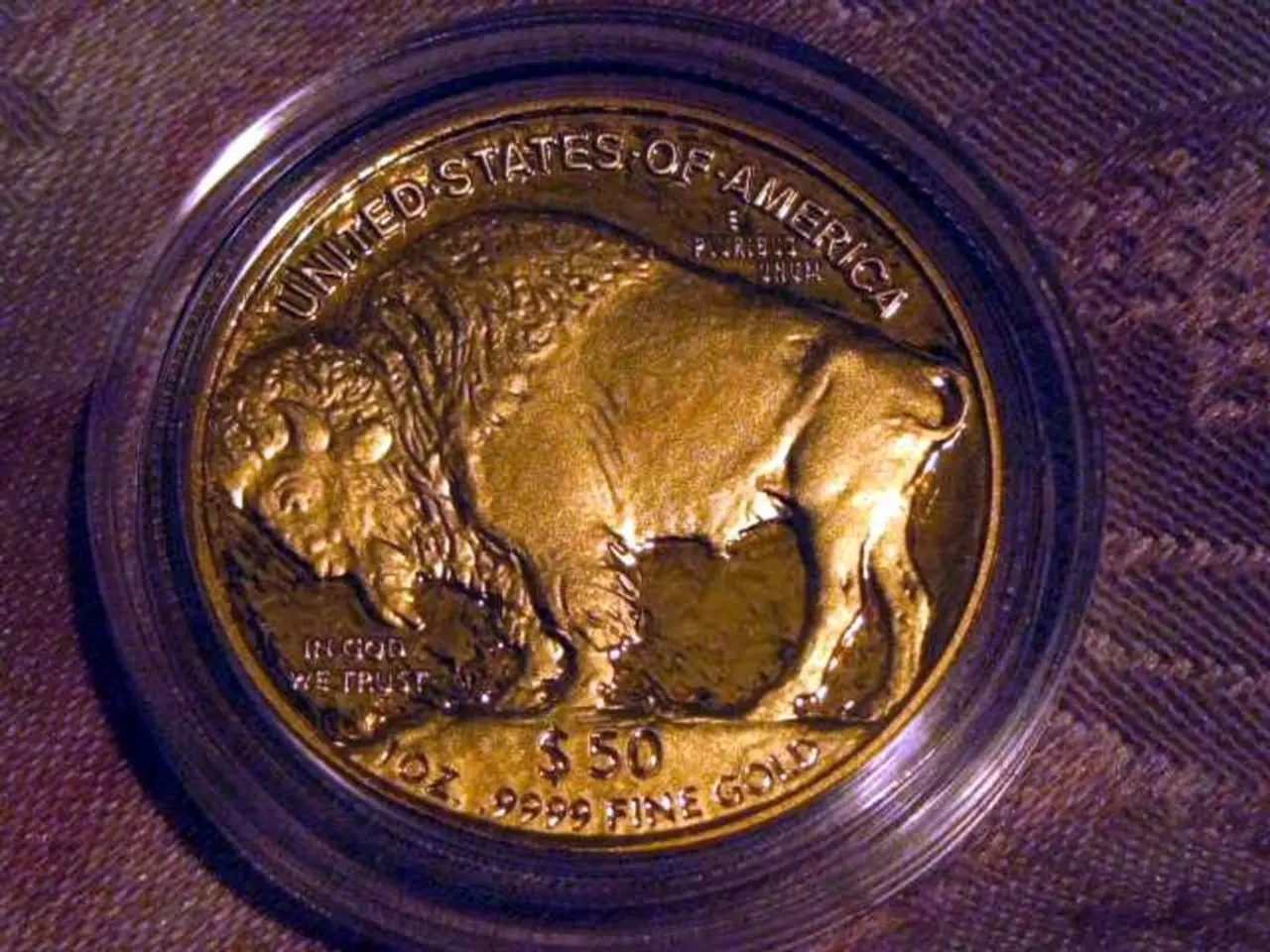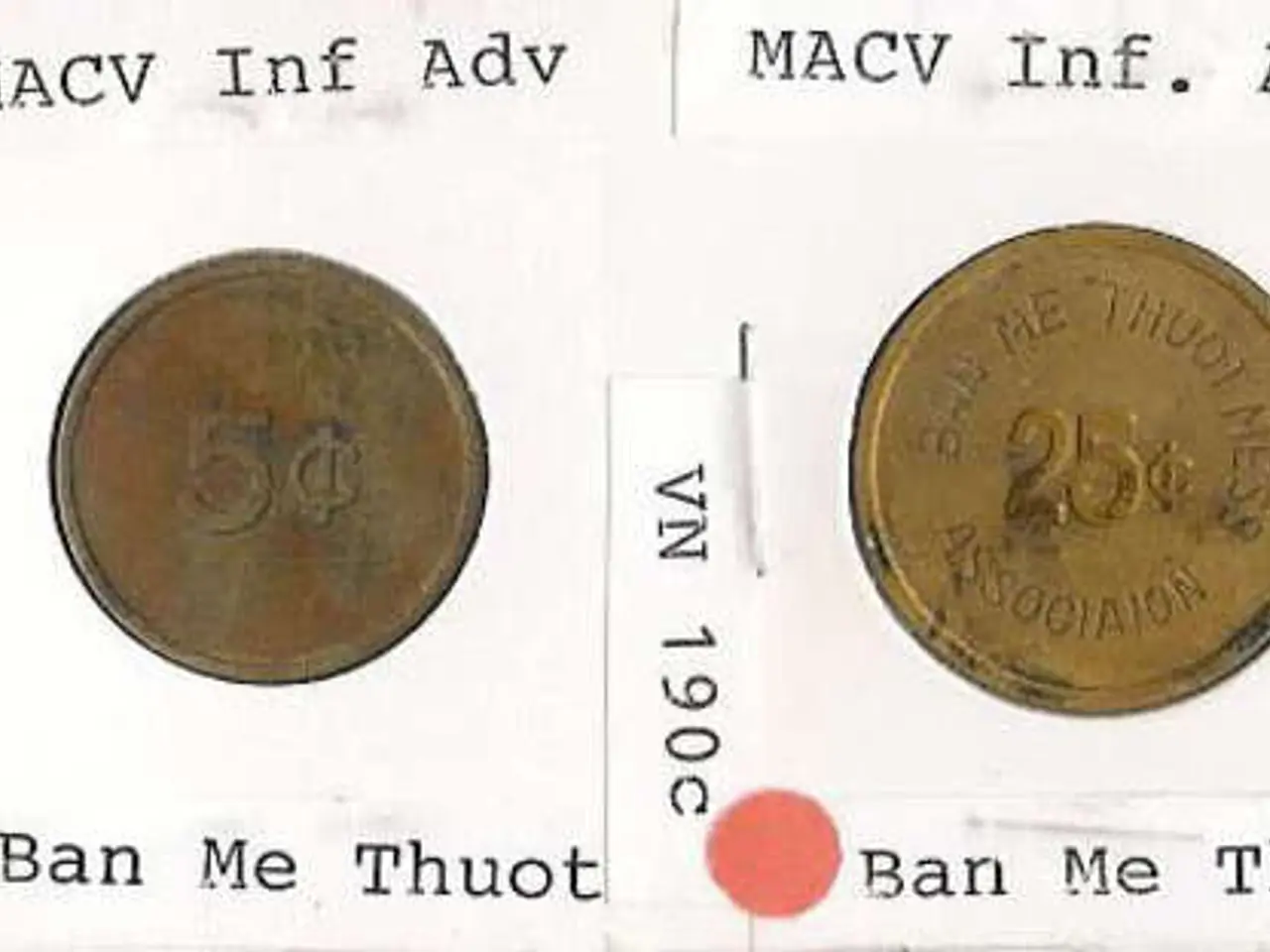Gold abundance poses challenges for Switzerland
In the bustling world of international trade, the United States has introduced a new layer of complexity with its tariffs on gold imports from Switzerland. While not every gold import has been subjected to straightforward tariffs, the confusion and uncertainty surrounding the issue has taken a toll on trade flows, causing concern among Swiss precious metals firms.
In April 2025, the U.S. unveiled a broad tariff list that included certain metals, but it was reported that bullion gold and large gold bars were exempted under specific tariff classification codes. However, imprecise customs code classifications have led to unclear applications, causing some Swiss refiners to temporarily reduce or halt gold exports to the U.S. due to the uncertainty about tariffs.
The high tariffs imposed by former President Trump, among the highest worldwide, have been a significant concern. After Trump presented his tariff list, traders rushed to bring gold into the U.S. in time due to fears of tariffs on gold bars. The sudden surge in gold imports from Switzerland to the U.S. was staggering, with 475 tons imported in the first half of 2025, compared to 153 tons in the entire previous year. This surge amounted to around $48 billion, roughly half the value of Switzerland's exports to the U.S.
The high tariffs would likely decrease the trade surplus with the U.S. for Switzerland, as the country's large trade surplus is primarily due to gold exports. Gold imports from Switzerland to the U.S. were worth over $14 billion last year, significantly contributing to the U.S. trade deficit with Switzerland.
The increased tariffs, initially threatened at 31%, were increased to 39% as no "deal" was reached with Switzerland by the deadline. The U.S. customs authority has obtained a "ruling letter" explaining details of trade policy regarding the import of one-kilogram gold bars, confirming the imposition of tariffs on these imports, as reported by the "Financial Times".
The surge in gold exports from Switzerland to the U.S. is linked to Trump's instigated trade conflicts and increased geopolitical uncertainty, making gold more attractive and expensive as a "safe haven" for investors. The gold trade runs through Switzerland as an intermediary, with raw gold and existing bars being processed, recast for certain markets, and then exported.
If the tariffs have indeed been imposed, it would be a heavy blow for Switzerland as a gold trading hub. The sudden surge in gold imports and the high tariffs imposed by Trump are causing concentration risk for Switzerland's economy. If the gold price drops, there is a risk of severe, disproportionate losses for Switzerland due to its reliance on gold exports.
This situation underscores the far-reaching effects of trade policies on global economies and the need for clarity and precision in the implementation of such policies. As the situation evolves, it will be interesting to see how both countries navigate this complex issue and its impact on their respective economies.
- In order to mitigate potential losses due to tariffs, Swiss precious metals firms are reevaluating their community and employment policies, prioritizing adaptability and diversification in the face of unpredictable trade flows.
- The financial implications of tariffs on gold imports from Switzerland have sparked discussions in various industry circles, with businesses analyzing the impact on their financing strategies, especially those dependent on trade with the U.S.




